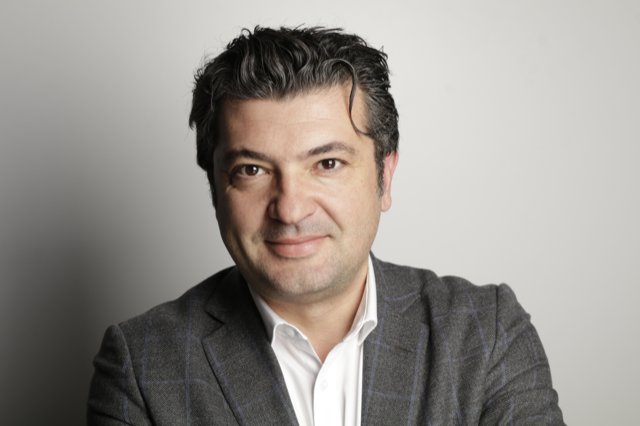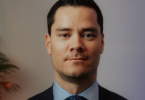Filippo Catalano, SVP and Chief Information Officer of the NestléGroup, is leading the world’s largest food and beverage company’s technology and digital transformation. He joined Nestle in March 2015 as Chief Digital Operations Officer . In this role, he was instrumental in redefining digital services at Nestle, including the creation of a new Global Digital Hub in Barcelona, and a Digital Tech Innovation team in San Francisco, which transformed the consumer facing digital and omnichannel platforms of the company into a modern, modular, cloud-first landscape. Catalano started his career with Procter & Gamble (P&G), eventually running the digital marketing program for Personal Beauty Care, managing the P&G European IT Innovation group and later driving the global innovation agenda for the company’s digitization program. While at P&G he focused on building the foundations for mobile, digital and brand assets, collaboration, social, and cloud infrastructure platforms and was also one of the founding members of Cintrifuse, a multi-company accelerator in Cincinnati.Born in Reggio Calabria , Italy, Catalano graduated from Politecnico di Torino with a Master of Science in Energy and Mechanical Engineering. He recently spoke to the Innovator about Nestle’s digital transformation.
Q: Where is Nestle in its digital transformation?
FC: Nestle has been working on its transformation for over three years now. The area that is most visible and is giving the most immediate return on investment is consumer facing areas. We have fundamentally transformed how we connect and manage consumer data at scale but also our ability to deliver to consumers -across all of our brands — messages that are personalized and relevant to them. There has been a lot of emphasis on bringing together the marketing, sales, and e-business functions and stepping up all the technology needed in the company to make that work in a well coordinated fashion, bringing together centrally provided capabilities, templates and methodologies. We are now looking at transformation with a wider angle for the company, including supply chain, manufacturing and so on. In some areas we are in industry-leading positions. For example, we are leading in adoption of Internet of Things (IoT) on the consumer side. All our coffee machines across brands such as Nespresso and NESCAFE Dolce Gusto now use a common IoT platform so we can bidirectionally exchange data with machines from all around the world which allows us to do things like predictive maintenance. In industrial IoT we are kind of beginning the journey. We have started to bring Industry 4.0 type of capabilities to Nestlé factories and supply chain — industrial IoT, automation, robotics, etc., to drive efficiencies, flexibility and speed. We have more than 400 factories and 1000 distribution centers, and one of the largest fully integrated ERPs in the world facilitating our ability to transact with customers on a global basis, so moving from experiment to real change will take real effort to execute at scale in a safe and reliable way.
Q: What are you doing to change the culture of the company?
FC: We are trying to get the organization — starting within IT, to look at employees’ underlying behaviors and identify archetypes of those that are really important if you want to drive transformation. You want to encourage people to be curious, innovative, courageous and collaborative. This means also empowering our employees and harnessing their passion and knowledge to bring innovation to the company. Our in-house accelerator program, InGenius, uses the power of crowdsourcing inside of the company, to do just that. InGenius consists of a dedicated ‘entrepreneurial support’ team and a crowdsourcing platform where employees can collaborate and grow ideas into tangible business opportunities. More than 43,000 Nestlé employees from 110 countries have generated over 3,000 new ideas and submitted over 64,000 votes. InGenius helps go through the steps of creating ideas, coalescing a team, coaching people on how to define an MVP and pitch for funding. Many of these ideas have become MVPs, pilots and new services, and two were even launched as physical products to consumers in 2019.
Q: Are you also bringing in ideas from the outside?
FC: In the past three to four years we created two new Global IT Hubs, the first one in Barcelona, Spain and another one in Milan, Italy, and other regional hubs in St Louis in the U.S. and in Mexico City. In the process we had to recruit people from the outside with different skills, different mindsets, and we can see these people aiding Nestlé’s transformation journey. (And by the way we have lots of new job openings on our site). In Barcelona for instance 75% of the employees are new to Nestlé. This influx of new culture and thinking allowed us to leverage differences, and diversity. Part of the reason we decided to do this is we want to use IT product management as a way of moving the organization away from jumping from one project to another. Instead we want to think about long lasting IT and digital products that need to be continuously adjusted to the needs of the employees, consumers and customers. The thinking is ‘how do I create an organization that is product driven and much more attuned to the needs of the “receivers”?’ We want the company to start thinking of technology as a weapon to win in the market and to deliver value both improving the top line and bottom line. We started looking at things like ‘how do we offer personal nutrition advice? How do we manage mobile apps in a way that allows us to offer fresh content with daily releases? When you start to look at the best way to meet these challenges you realize that in order to have a competitive advantage you need the right internal people so that you can make sure that you have full control over the user experience as well as the quality and cost. That is why we launched the Barcelona Global IT Hub in 2016 to build the teams we need in customer-facing applications in mobile, consumer data, media tech and marketing tech. The interesting thing that happened was we started to attract talented people from all over the world. We now have 500 plus IT people in Barcelona representing 45+ nationalities. Some 35% overall and 40% of management are women and a good portion of the people are coming from tech startup experiences. Once you hire smart people you have to empower them to tell the broader story across the organization. That is why we launched an internal social platform and encouraged these new employees to create ‘digital bytes’: seven to nine self-created videos, shot on an iPhone, lasting less than 10 minutes that explain either how certain things work or how what they are working on can help others around the world. The other thing we have done is create an on-boarding digital boot camp so new employees can learn everything about the company in one week. We have trained over a thousand people this way. We also stress functional competencies in areas such as project management and cybersecurity. We held a massive virtual event in 2019 at 50 locations involving 5000 people in just over 24 hours to do training and offer TED-style talk to make sure our IT employees have the right competencies and awareness.
Q: What advice would you give to people responsible for innovation at other large companies?
FC: Culture is not something you deploy. Communicating about culture doesn’t work, it just gives you the illusion that something is actually happening. Leaders at every level need to gently nudge people towards the desired behavior and reward people that have those behaviors. When someone does something innovative that is against the status quo you need to give a sign as a leader, in support of them. Otherwise no one will dare to try.
Avoid developing technology for technology’s sake. Everybody with a tech function has to articulate the purpose, value and benefit in business terms.
There are a lot of recipes for digital transformation but what is important is to adapt to the taste and reality of your company. While you cook you have to continuously put your spoon in the soup, test it and add a bit of salt and pepper along the way. You don’t want to spend two years cooking something only to find out it isn’t good.
To access more of The Innovator’s Interview Of The Week articles click here.







